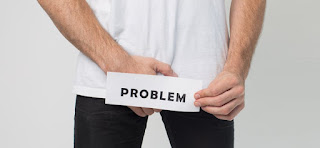Prostate Cancer is one of the most common kind of cancer for the people of Adam. Prostate is an organ that lies under the bladder. These organs are useful for producing semen. According to the CDC, prostate cancer is the most most frequent cancer in men in the United States, and 1 of 100 men of 60 s will have prostate cancer before they reach 70 years. Then, how do I prevent prostate cancer?
What a man has to do to prevent prostate cancer.
The risk of a man has a prostate cancer going to increase with age. In fact there is no way that finite proved to prevent a full prostate cancer, but research shows that a change of lifestyle and healthy food can help reduce the risk of men experiencing this disease.
1. Often eat tomatoes and other red fruit
Tomatoes, watermelon, and other red foods have an antioxidants named lycopene. The more red of a tomato, the more content content. Some research shows that the man who consumed these fruits has a smaller risk to experience prostate cancer compared to those who do not. Other research shows that cooking tomatoes makes your body easier to absorb the contents of the lycopene in it.
2. More fruits and vegetables
The nutrients and vitamins in the fruit and vegetables can reduce the risk of having prostate cancer. Green vegetables contain a compound that can help the body destroy the carcinogenic substances. In addition, the higher nutritious food can also prevent the spread of cancer.
3. Eat fish
The Omega-3 acid can lower your risk experience prostate cancer. The Omega-3 can easily find on various kinds of fish such as sardines, tuna, mackerel, and salmon. Compared to consuming fat meals, consuming fat food plus with fish oil supplements has proven to slow the growth of prostate cancer cells.
4. Tea and soy milk
An active compound in a tea called isoflavon has proven to be able to lower the risk of prostate cancer. This nutritional is usually contained in tofu, lentils, and beans. Some research also shows that the men who drink green tea or mengonsumsinya in the form of supplements have a lower risk experience prostate cancer compared to those who do not.
5. It's okay to have a cup of coffee
Studies for decades, indicating that consuming coffee may reduce the risk of prostate cancer. However, keep in mind that caffeine in high doses can impact a negative for health, such as causing an irregular heartbeat and even seizures. The Mayo clinic suggested to consume the caffeine by 400 mg per day for adults or equivalent to 1½ cups.
How coffee turns out, too. A research suggests that a man who drinks coffee is directly brewed aka kopi bump has a smaller risk to experience prostate cancer compared to those who drink coffee filters with coffee paper. Chemicals and kahweol in coffee turns out to have an effect against cancer. The researchers believe that these chemicals will be left on paper filtering when coffee gets filtered first.
6. Quit smoking
Suffering from prostate cancer patients tend to risk a relapse. The Smokers are also more likely to experience an aggressive form of prostate cancer.
It's never too late to stop. Compared to the remaining smokers, former smokers who have stopped for more than 10 years have the same risk of death with those who have never smoked.
7. Diligently exercising
Has too much fat, especially in the center of the body increases the risk of having prostate cancer. Exercising regularly can help you maintain weight, muscle mass, as well as metabolism. Try to walk, run, ride, or swim.
8. diligent checkup to the doctor
Ask the doctor how risky you can experience prostate cancer. Some things you can discuss is a test what you can do to know the risk of your prostate cancer, how family history affects the risk of your prostate cancer, and eating patterns like what your doctor is recommended to prevent prostate cancer. Immediately let the doctors know if you experience symptoms such as discomfort in the pelvis or the anal area, it's hard to pee, or there's blood on your urine / semen.

























0 Comments: